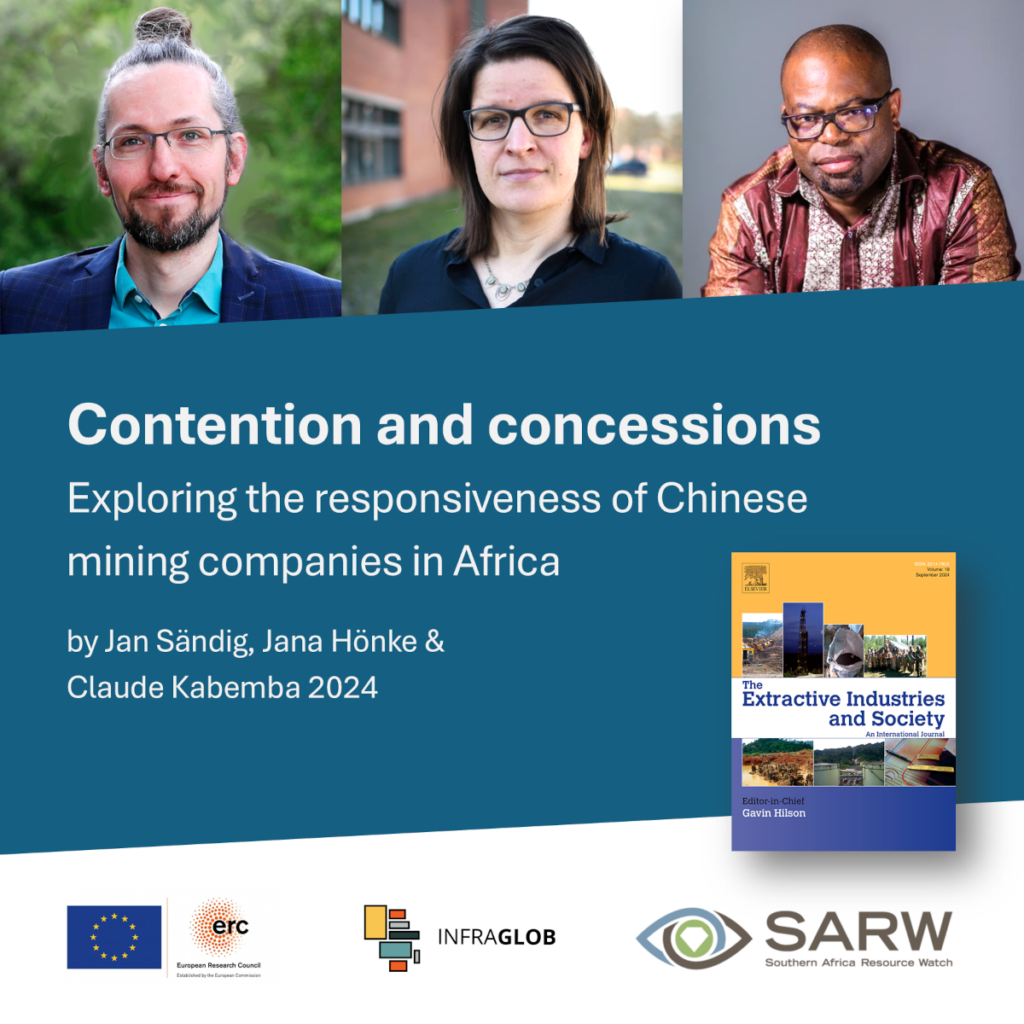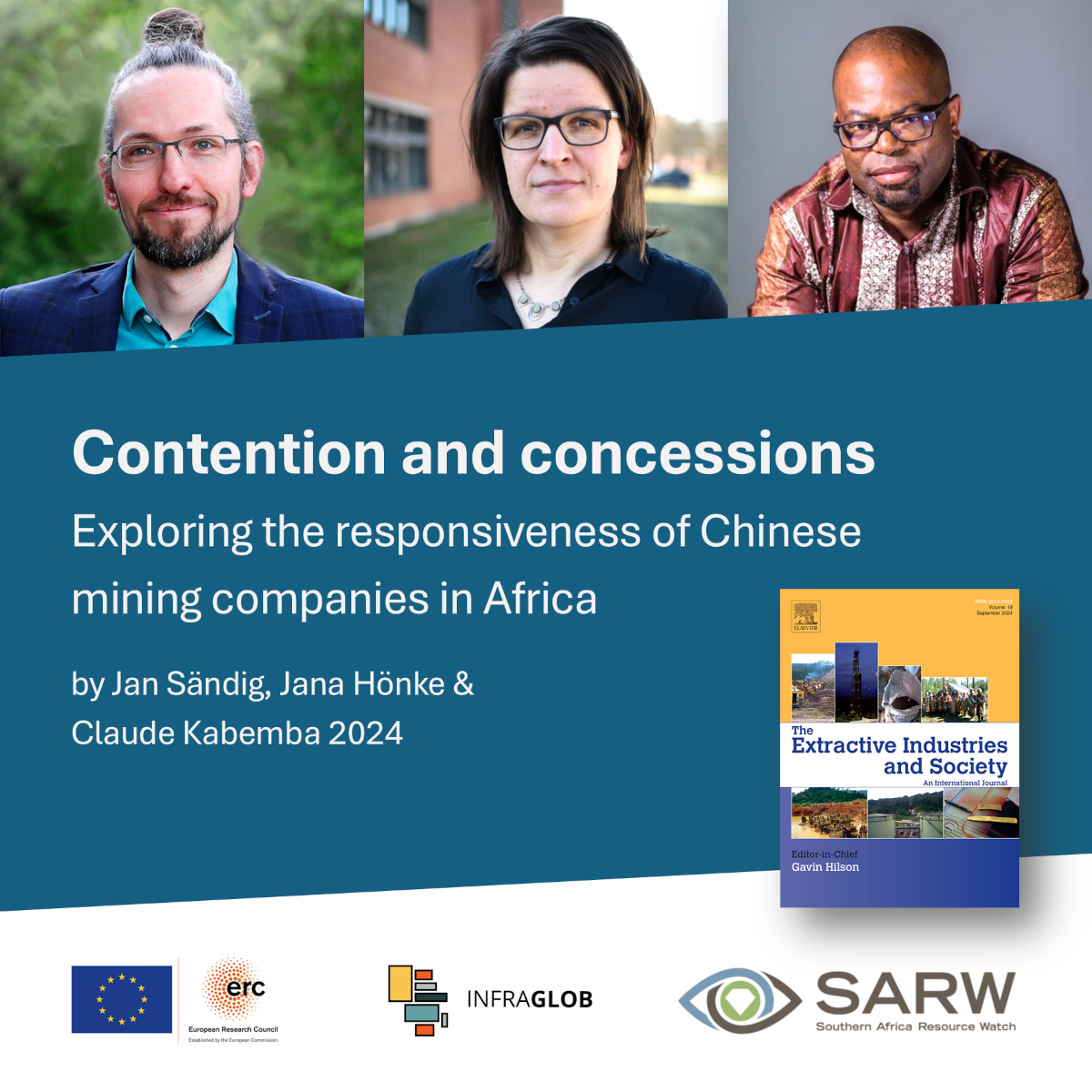Jan Sändig and Jana Hönke, members of Conflicts.Meanings.Transitions, recently published a new article (together with Claude Kabemba) within the area of Peace and Conflict Research.
Contention and concessions: Exploring the responsiveness of Chinese mining companies in Africa
by Jan Sändig, Jana Hönke & Claude Kabemba
A collaborative study of the INFRAGLOB project at the University of Bayreuth & Southern Africa Resource Watch (SARW)
In The Extractive Industries and Society, Vol. 20, December 2024
Highlights
- Examines how major Chinese mining companies respond to resistance.
- Finds that Chinese miners concede under similar rationalist conditions as their Western and other global peers.
- Argues that intense disruptive actions and pressure from state actors and NGOs lead to concessions.
- Shows that reputational vulnerability is key for responsiveness but is lower for many Chinese companies due to China’s domestic context.
Abstract
As China’s investments are rising fast across the globe, we examine the circumstances under which Chinese mining companies concede to protest. While scholars have already identified success conditions of such struggles, it is unclear if these conditions apply to Chinese cases as well. More so, some research suggests that Chinese business practices fundamentally differ from others. Therefore, we seek to better understand Chinese corporate responsiveness by examining major mining projects from Guinea and the Democratic Republic of the Congo (DRC). Our analysis draws on protest event data (collected from news and social media), interviews, and further sources to trace protests and company responses. We find that Chinese mining companies indeed concede under similar conditions as Western and other companies: recurrent disruptive actions, pressure from state actors and NGOs, and reputational concerns are key factors for their responsiveness. As we discuss, however, reputational vulnerabilities, which result from global supply chains and transnational activism, are differently distributed in the Chinese case, which undercuts the responsiveness of some major Chinese miners.



